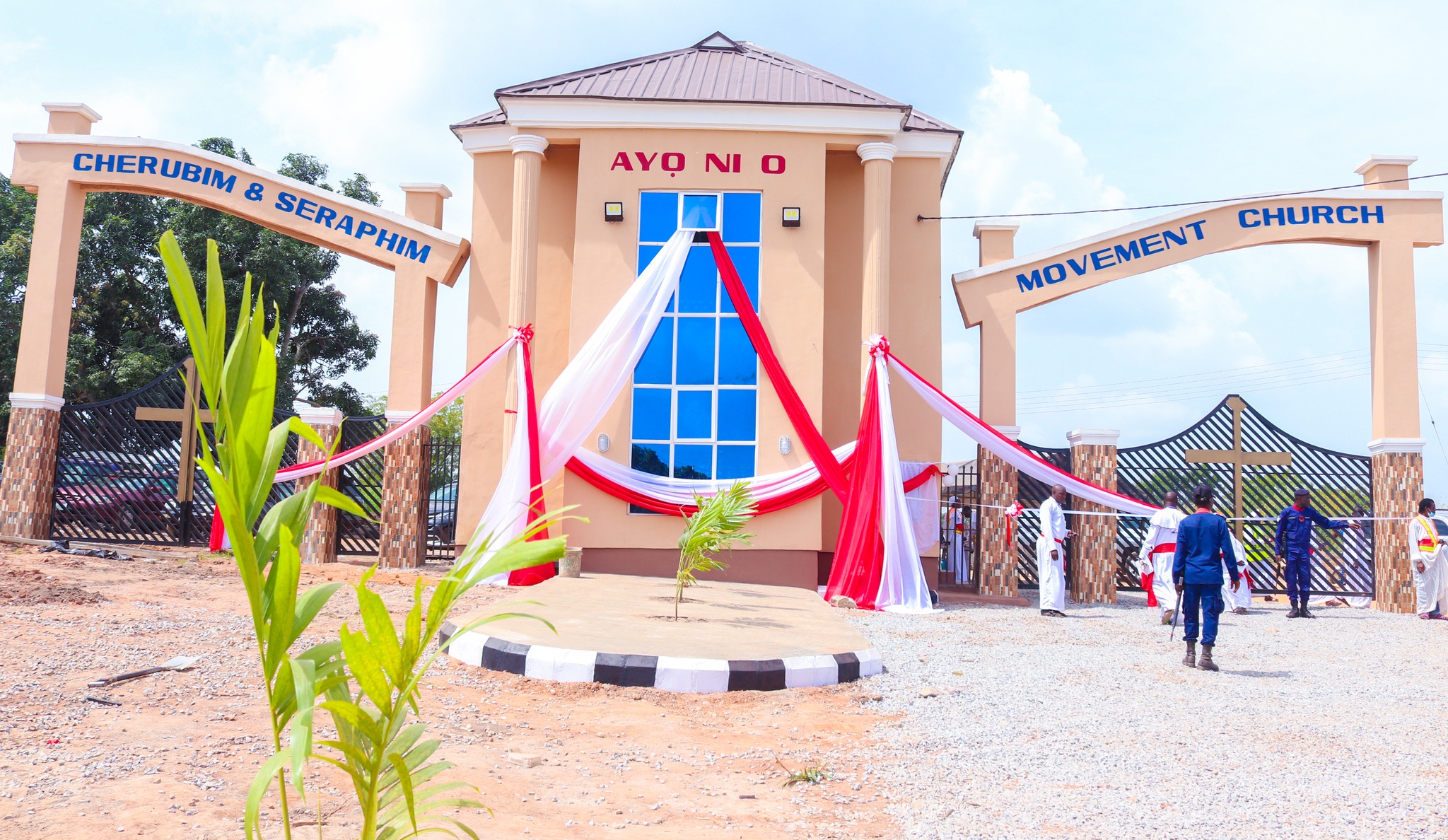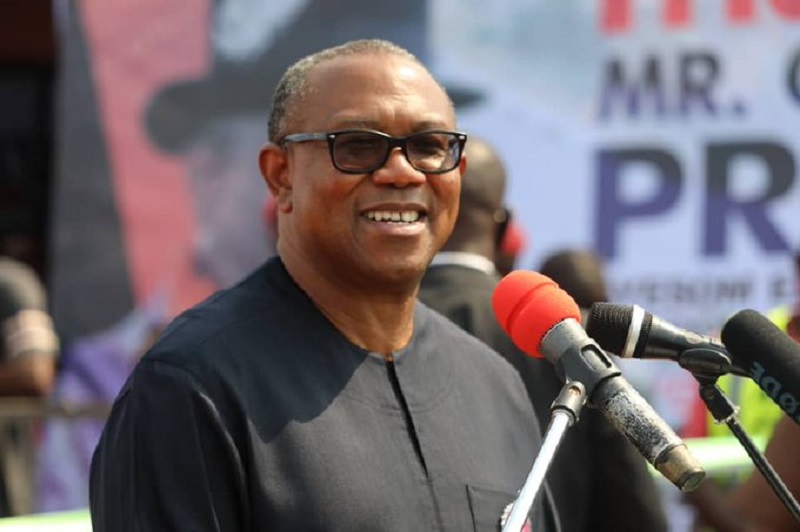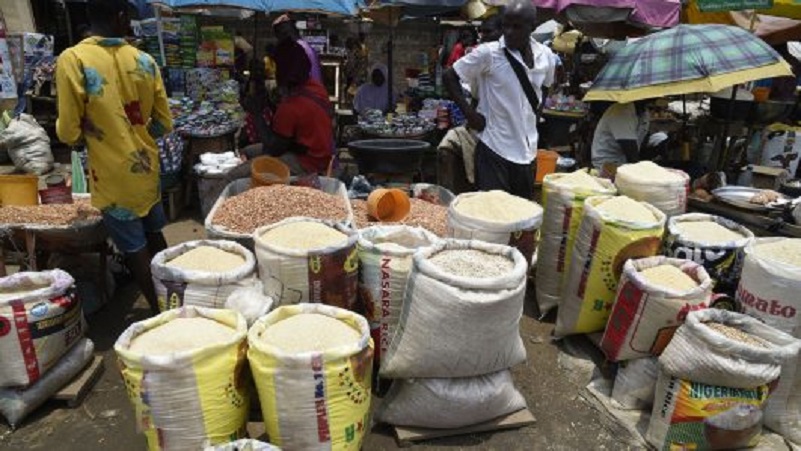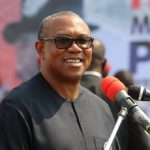General
Group Warns Kogi Governor Over COVID-19 Vaccine Utterances

By Aduragbemi Omiyale
Governor Yahaya Bello of Kogi State has been warned to be mindful of his utterances concerning the COVID-19 vaccines because his actions lately were “tantamount to incitement to commit war crime.”
Mr Bello has not hidden his opinion concerning the virus, which emanated from China and spread to the four corners of the globe.
The contagion was first recorded in Nigeria on February 27, 2020, and at the moment, it has infected more than 100,000 persons in the country and killed over 1,400 people.
Globally, it has infected and killed millions of people, with the United States, Brazil, India and others among the worst-hit in the world.
But the Kogi State Governor has always rushed to the rooftop to say COVID-19 was not real and recently, he was seen in a video saying the vaccine developed in an unprecedented time was aimed to implant something on people, urging his people not to receive the jabs.
Reacting to this, a group known as the APC Mandate Defenders argued that discouraging Nigerians not to be inoculated with COVID-19 vaccines in the face of the ongoing biological war was criminal.
The group, in a statement issued on Tuesday in Abuja by its National Publicity Secretary, Mr Ifeanyi Emeka, reminded the young Governor that no vaccine would be administered on any Nigerian without the authorisation of the National Agency for Food and Drug Administration and Control (NAFDAC).
According to the APC Mandate Defender, there are different types of vaccines approved for emergency use by the World Health Organisation (WHO) as well as the various regulatory bodies across the globe.
Some of the approved vaccines are Oxford-AstraZeneca Vaccine, Pfizer-BioNTech Vaccine, Moderna Vaccine, Sinovac Vaccine among others.
“Therefore, alleging that President Muhammadu Buhari led federal government wants to introduce vaccines to kill Nigerians in his unfortunate video is the height of desecration and disrespect for the Office of the President of the country.
“It also amounts to insubordination as well as usurping the powers of the President and Commander-in-Chief of the Federal Republic of Nigeria,” the group.
“We can afford to allow Governor Bello to continue with his foolishness unrestrained, but accusing the president of introducing vaccines in order to kill Nigerians will not be tolerated by any means because that is the highest form of incitement against Mr President,” it warned.
The organisation appealed to Nigerians to ignore Mr Bello and rally round Mr Buhari as he “strives to fulfil his campaign promises to the people because, inside every cynical person, there is a disappointed idealist.”
The APC Mandate Defender emphasised that it would “resist [the] covert and overt strategies [of the Governor] aimed at destroying the government of President Buhari who still have some years to make Nigeria better.”
General
Church Confirms Release Of 151 Abducted Members in Kaduna

By Adedapo Adesanya
The Cherubim and Seraphim Movement Church Worldwide, Ayo Ni O, has confirmed the release and safe return of 151 of its members abducted from Iburu community in Kajuru Local Government Area of Kaduna State.
The abduction, which affected about 177 people, occurred on January 18, 2026. It was initially denied by the Nigeria Police Force and other government agencies, but was later confirmed.
In a statement issued by the Conference Secretary General of the church, Mr Anthony Olusesan Samaiye, it was disclosed that the release of the abducted persons was confirmed through reports from its liaison officers in Kaduna.
According to the statement, Mr Emmanuel Abiodun Adewale Alogbo (JP), described the release as a victory for faith, prayer and dialogue, noting that the breakthrough followed an emergency visit to Kaduna by its leadership and a series of high-level engagements aimed at securing the freedom of the abducted worshippers.
The Cherubim and Seraphim Church expressed gratitude to the Kaduna State government, particularly Governor Uba Sani, for what it described as his commitment to dialogue and the coordination of state resources that contributed to the successful outcome.
Special appreciation was also extended to the Governor’s Chief of Staff, Mr Sani Liman Kila, and the Senior Special Assistant on Religious Affairs (Christian Matters), Mr Ishaya Jangado, for facilitating engagement between the church and the state government.
The church noted that the incident demonstrated the importance of cooperation between religious leaders and government authorities in addressing security challenges and protecting citizens.
It also acknowledged prayers and support from the Christian Association of Nigeria (CAN), the Organisation of African Instituted Churches (OAIC), the international community and Christians worldwide.
While celebrating the release, the church said it was mindful of the trauma experienced by the victims and disclosed that its welfare and medical teams had been mobilised to provide psychosocial support and care to the affected members and their families.
The church called for sustained peace in Kaduna State and across Nigeria, urging authorities to continue efforts to ensure the safety of all citizens, regardless of religious affiliation.
General
2027 Elections: I Won’t be Vice Presidential Candidate—Peter Obi Insists

By Adedapo Adesanya
As activities for the 2027 general elections begin to take shape, the former presidential candidate of the Labour Party in the 2023 presidential poll, Mr Peter Obi, has again ruled out the possibility of contesting as a vice presidential candidate next year, saying he is contesting to be on the ballot.
Speaking ahead of the Abuja Municipal Area Council (AMAC) election in the Federal Capital Territory, he said, “You see this coming election, support us in AMAC; it will help me. Your support in AMAC is critical to our journey. I am involved and contesting the coming election as number one. When I come back, you will see. I assure you.”
Mr Obi vied for the 2023 presidency on the LP platform, emerging third overall behind Mr Atiku Abubakar and President Bola Tinubu.
In December 2025, he defected to the African Democratic Congress (ADC), where his teeming supporters popularly known as Obidients have urged him to only pursue the presidential ticket.
Mr Abubakar, who chose Mr Obi as his vice presidential candidate in the 2019 polls, is also a member of the ADC. The men finished in second and third places, respectively in the last presidential election, which President Tinubu won with 37 per cent of the votes.
Speaking at the campaign venue, Mr Obi emphasised to his supporters the importance of backing the ADC candidate in the AMAC election, noting that their support at the grassroots would go a long way in bolstering his national political journey.
The ADC coalition includes many former allies of Mr Tinubu, including Mr Nasir El Rufai, the former governor of Kaduna State; Mr David Mark, a former Senate President who is serving as the National Chairman of the party, and Mr Rauf Aregbesola, a former Osun Governor and currently the National Secretary of ADC.
The party will be hoping to emulate the success of the ruling All Progressives Congress (APC), which was formed by an alliance of opposition politicians (including Mr Abubakar) in 2013 and caused the ouster of former President Goodluck Jonathan, the first-ever defeat of an incumbent Nigerian president in 2015.
General
CPPE Urges FG to Create Farm Price Stabilisation Plan for Food Security

By Adedapo Adesanya
The Centre for the Promotion of Private Enterprise (CPPE) has called on the federal government to urgently establish a National Farm Price Stabilisation and Farmer Income Protection Framework to safeguard Nigeria’s long-term food security.
This was contained in a policy brief signed by the chief executive of the think tank, Mr Muda Yusuf, on Sunday.
The group warned that while recent import surges have lowered food prices to the delight of consumers, they have simultaneously inflicted severe financial losses on farmers and agricultural investors, creating what it described as “troubling trade-offs and unintended consequences.”
He advised that Nigeria cannot afford a policy regime that undermines confidence in agriculture, one of the country’s most strategic sectors and largest employers of labour.
“The welfare gains from cheaper food have been profound and should be acknowledged. However, the cost to farmers and other investors across the agricultural value chain is equally high and cannot be ignored,” Mr Yusuf stated.
The CPPE boss emphasised the urgent need to strike a sustainable balance between keeping food affordable for consumers and protecting farmers’ incomes, while safeguarding agricultural investment.
According to the policy document, recent import surges of staples such as rice, maize and soybeans have caused serious dislocations in the agricultural investment ecosystem, inflicting severe hardship on farmers and weakening production incentives.
“Although consumers have welcomed the decline in food prices, the long-term consequences are adverse: farmer incomes fall, production declines over time, investment confidence weakens, and the country risks returning to cycles of scarcity and higher prices,” the document warned.
The CPPE identified several structural factors driving recurring farm price collapses in Nigeria, beyond the immediate impact of food imports.
The think tank warned that harvest glut remains a major challenge, with many farmers harvesting the same crops within the same period, causing sudden oversupply. This is compounded by the limited availability of storage facilities, drying centres and cold-chain systems, which forces farmers to sell immediately regardless of market conditions.
The organisation said this is also affected by weak rural logistics, characterised by poor roads, insecurity, high transport costs, and limited aggregation hubs, which make it difficult to move produce efficiently from production zones to high-demand markets.
-

 Feature/OPED6 years ago
Feature/OPED6 years agoDavos was Different this year
-
Travel/Tourism9 years ago
Lagos Seals Western Lodge Hotel In Ikorodu
-

 Showbiz3 years ago
Showbiz3 years agoEstranged Lover Releases Videos of Empress Njamah Bathing
-

 Banking8 years ago
Banking8 years agoSort Codes of GTBank Branches in Nigeria
-

 Economy3 years ago
Economy3 years agoSubsidy Removal: CNG at N130 Per Litre Cheaper Than Petrol—IPMAN
-

 Banking3 years ago
Banking3 years agoSort Codes of UBA Branches in Nigeria
-

 Banking3 years ago
Banking3 years agoFirst Bank Announces Planned Downtime
-

 Sports3 years ago
Sports3 years agoHighest Paid Nigerian Footballer – How Much Do Nigerian Footballers Earn





















